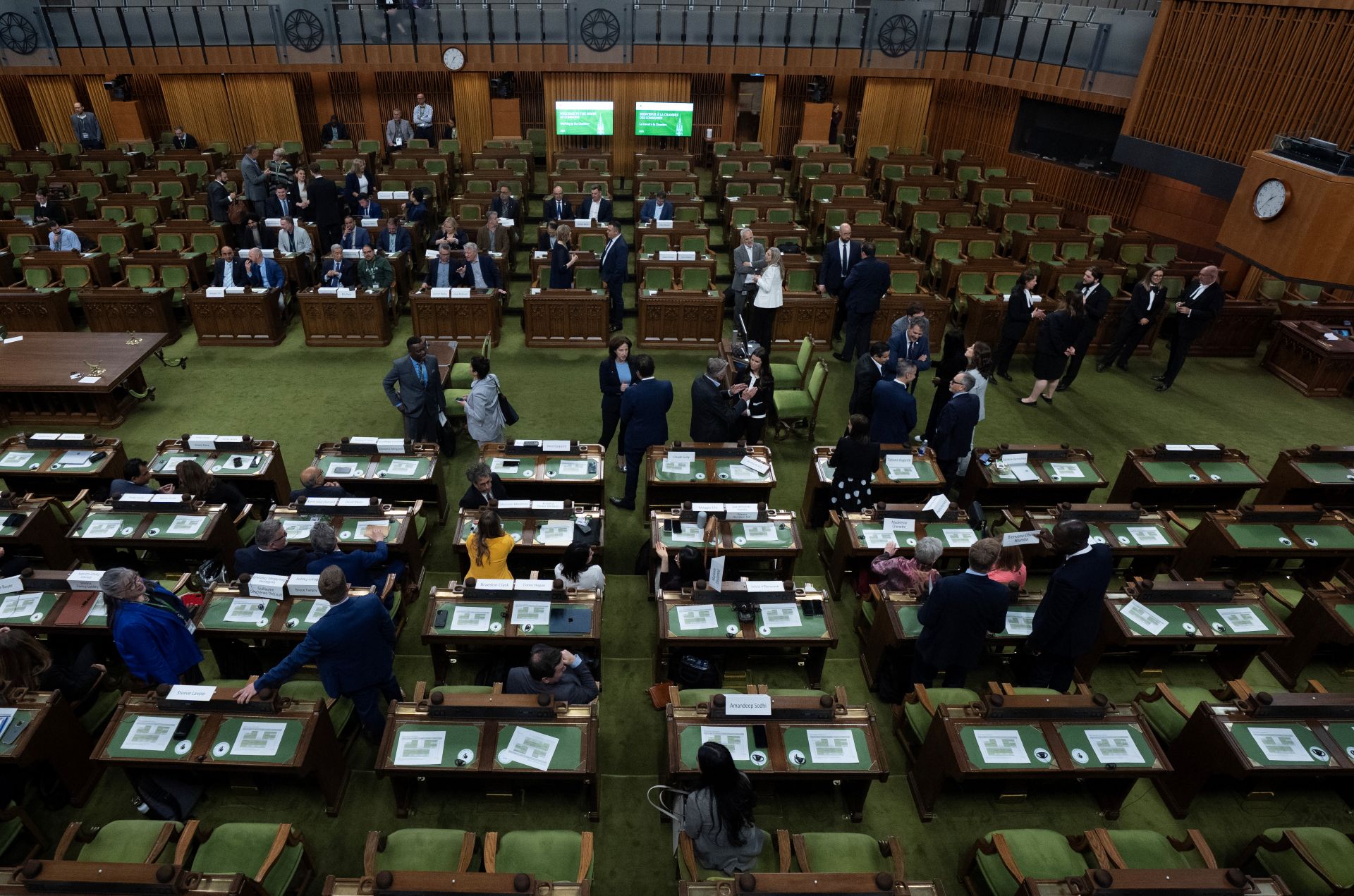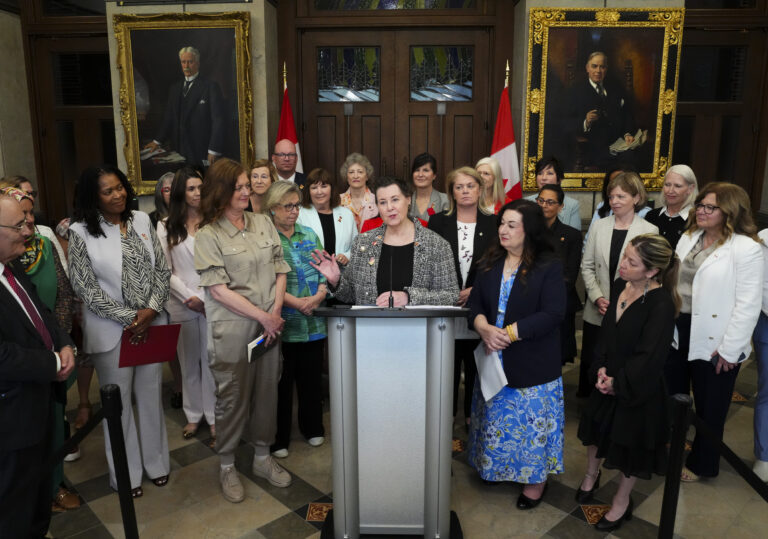Canada’s parliamentary system has a big problem. Too many MPs feel trapped in a party-first culture that rewards message discipline over constructive debate and local representation.
It’s the opposite of why most people get into politics. That’s usually for noble reasons. They want to serve their communities, and use their skills and expertise to improve society. But once elected, if not before, they face the startling reality that they are expected to repeat party messages, not voice their opinions or those of their constituents.
Elected representatives are asked to act as loyal communications assets for party leaders rather than as trustees of the public good and delegates for their constituents.
Open disagreement with leaders is rare and often treated as insubordination. The resulting chill discourages tough questions, viable alternatives and healthy debate – all key ingredients of good governance, responsible government and effective policymaking.
In rare cases, these disagreements become so acute that the MP leaves the party caucus, with or without crossing the floor to another party. For example, Nova Scotia MP Chris d’Entremont quit the Conservative caucus last week and joined the Liberals.
“After serious consideration and thoughtful conversations with constituents and my family, I came to a clear conclusion: there is a better path forward for our country . . . Prime Minister Mark Carney is offering that path with a new budget that hits the priorities I have heard most in my riding, to build strong community infrastructure and grow a stronger economy. That is why I am joining the government caucus,” he said.
Still, hyperpartisanship sits at the centre of this problem. It homogenizes viewpoints within caucuses, narrows the range of ideas considered in committees and legislatures, and replaces compromise with zero-sum competition.
When party loyalty trumps other forms of representation, pluralism suffers. Dissent is suppressed, cross-party coalition-building ceases and policymaking becomes a game of brinksmanship rather than problem-solving. When party lines also coincide with regional divisions, the environment becomes even more toxic in a diverse federation that relies on brokerage and collaboration.
What can be done?
In our new book, No I in Team: Party Loyalty in Canadian Politics, we offer practical reforms that would rebalance incentives, empower parliamentarians to do the jobs that voters elected them to do and improve the quality of Canadian policymaking.
These range from empowering backbenchers and reducing the influence of the leader’s or the party’s political staff to reducing the number of confidence votes that could lead to the fall of the government and making it easier for independents to get elected and to be effective MPs. These are practical measures, which could be easily enacted by MPs and party leaders, and which do not require constitutional reform.
The mechanics of party discipline are familiar to anyone who has served in or watched Canadian politics closely. Leaders’ offices and senior staff exercise outsized control over caucus business and public communications, even on matters that ought to be open to conscience and constituency perspectives. Committee assignments, speaking opportunities and campaign resources are allocated to keep MPs in line.
When members can’t abide the constraints, leaving caucus and/or moving between parties carries such negative repercussions that few former partisans seek, let alone secure, reelection. Over time, the system selects loyalists and sidelines independent-minded parliamentarians, further accelerating polarization and eroding trust.
The consequences for policymaking are just as serious. Teams that prize conformity over deliberation make poorer decisions. Leaders who tie major bills, often omnibus packages, to confidence votes suppress amendment and oversight, making legislation less robust and less legitimate in the eyes of opponents and the public. This invites court challenges, policy reversals or administrative workarounds that further sap public trust.
Fortunately, none of this is inevitable. Much of it is the product of rules and practices that we can change. Parties got us into this mess, so we can pressure them to reverse course.
Power to the MPs
The proposals in our book don’t attack parties. They ask parties to behave the way Westminster politics were designed. Here, we return to a classic conception of representation: parliamentarians juggling trustee and delegate roles, guided by personal judgment, constituency voices and, yes, partisan imperatives.
Here’s what we propose:
Create a multipartisan training program for parliamentarians: Orientation today happens in the chaotic weeks after an election, is largely controlled by party leadership and socializes rookies to message discipline rather than democratic representation.
We propose a cross-party program – designed and delivered by former parliamentarians – focused on the craft of representation, the nuts and bolts of procedure, and the skills necessary to work across party lines.
It would teach how partisanship can help or hinder the public good; build relationships across caucuses; and include closed-door modules on managing toxicity and work-life balance. The aim is to equip rookies (and all parliamentarians) to be effective legislators, not simply dutiful partisans.
Empower backbenchers by reducing centralized party control: Give Speakers, not party whips, the discretion to recognize who gets to speak in the Commons. Hold internal votes on caucus membership procedures. Allow committees to choose their members by secret ballot to better match expertise with mandates.
These changes would strengthen scrutiny, open doors for smaller parties and independents, disincentivize hyperpartisan behaviour and channel parliamentarians’ substantive knowledge into policymaking.
Curb the flagrant use of confidence votes: Confidence votes should be limited to measures needed to sustain governments, not to stifle the legislature.Permit more free votes andestablish a clear practice: losing a vote on a bill – even a major policy initiative – should not topple a government unless there is an immediate, explicit motion of non-confidence or the government announces in advance that it considers the vote a confidence measure. (Votes on a budget are generally considered confidence votes.)
This would reduce brinksmanship, deter abuse of omnibus bills and let members oppose specific measures without the fear of an early election. It’s a return to 19th-century practice, adapted to today’s realities.
Limit the role of political staff in caucus business: Caucus needs space to fulfil its representative function. Institutionalize in-camera sessions without staff, so elected members can deliberate frankly with each other and their leaders. Set basic, transparent rules for how chairs run meetings.
This is both practical and symbolic. It reasserts the primacy of elected representatives and reduces the perception (and/or reality) of unelected staff steering policy and careers.
Prohibit floor crossing and formalize ‘two-stepping:’ When a member does leaves a caucus, require them to sit as an independent for a defined period of time before joining another caucus or to resign and seek reelection.
This cooling-off rule respects constituents, discourages opportunism and provides a check on leaders’ power, without trapping members in parties where they no longer fit. Manitoba tried a floor-crossing ban and the courts found it constitutional, although a later government repealed it. A legislated two-step, focused on accountability rather than punishment, strikes a good democratic balance.
Extreme partisanship is infecting committees, and we should be worried
Prevent parties from withholding local files: When an elected official leaves a party, they can lose access to case files and campaign data that are essential to serving their constituents. Clear rules should guarantee continued access to constituency records so voters aren’t collateral damage in intra-party disputes. The data question (who owns what) isn’t trivial. It goes to the heart of representation.
Level the playing field for independents: Rules now stack elections and legislatures against Independents, even though a handful of diligent non-partisans can enrich debate and keep governments honest. Adjust election law and standing orders to remove unnecessary barriers to fundraising, committee participation and visibility. We don’t need dozens of independents, but we need the option to have some who work outside parliamentary caucuses.
No easy solutions
Our proposals are not silver bullets. Hyperpartisanship and message discipline are “wicked problems” propelled by social media, data-driven campaigns and incentives that reward outrage over persuasion. But rules shape culture. A short list of practical changes could rebalance incentives enough to make policymaking less performative and more deliberative.
We close our book with a challenge and an invitation. The challenge is to backbenchers to use the tools available to change rules and norms. The invitation is to leaders to accept that openness and occasional dissent make parties stronger and policies smarter.
Canada needs legislators willing to spend a little of their political capital to make better policy possible. Canadians should demand no less of them at election time.














